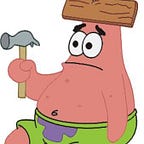The 10 Inspiring Sci-Fi Books for Designers
Science Fiction has always had a huge influence on design when it came to creating something innovative and unique. Sci-Fi books not only introduce visions for the future but also give inspirations for today, creating connections and interactions between the past, present, and future — which designers often need to think about during the creation of their products and solving problems creatively. Instead of sci-fi films, as already-designed visual forms, sci-fi books spark creativity with written imagery that boosts designers’ imagination and broadens their perspective. These films do their best in telling sci-fi stories with time lengths ranging from one and a half to two hours, but books marinate in our minds, leaving a lasting impression. Therefore, here is my list of the top 10 favorite and inspiring sci-fi books for designers:
1.Isaac Asimov, Foundation (1951):
Foundation was published in 1951, however, Asimov extended the story and it became a seven-book series. The story is about a planet/institution founded by psychohistorian Hari Seldon and he is to preserve the best of galactic civilization science knowledge after the collapse of the Galactic Empire. It won the Hugo Award for Best All-Time Series in 1966.
2. Frank Herbert, Dune (1965):
“Dune is set in the distant future amidst a feudal interstellar society in which various noble houses control planetary fiefs. It tells the story of young Paul Atreides, whose family accepts the stewardship of the planet Arrakis.” It won the Hugo Award and Nebula Award for Best Novel.
3. Philip K. Dick, Do Androids Dream of Electric Sheep? (1968):
The setting is post-apocalyptic San Francisco, in the future after the nuclear war, and bounty hunter Rick Deckard hunts for fugitive androids. The book also served as the main story for the Blade Runner movies.
4. Ursula K. Le Guin, The Dispossessed: An Ambiguous Utopia (1974):
The Dispossessed, the Hugo and Locus Awards winner in 1975, is about inequality, social justice, and economics in the future. “It achieved a degree of literary recognition unusual for science fiction due to its exploration of themes such as anarchism (on a satellite planet called Anarres) and revolutionary societies, capitalism, and individualism and collectivism.”
5. Mary Shelley, Frankenstein (1818):
Victor Frankenstein, a young scientist, creates a sapient creature in an unorthodox scientific experiment. The book has many movie adaptations but one of the important Frankenstein adaptations is a play directed by Danny Boyle and played by Benedict Cumberbatch and Jonny Lee Miller in 2011.
6. William Gibson, Neuromancer (1984):
One of the most significant cyberpunk theories of all the time, winning the Nebula Award, the Philip K. Dick Award, and the Hugo Award. The Matrix trilogy adapted Neuromancer’s main story about A.I. and cyberpunks.
7. Blake Crouch, Dark Matter (2016):
The book is about a scientist named Jason Dessen who invents a machine that he can travel between parallel universes but when he begins to travel, stopping time becomes impossible.
8. George Orwell, 1984 (1949):
A dystopian sci-fi about totalitarianism, mass surveillance, and political repression, and how facts can be manipulated by the governments. It must be read during the post-truth and social media era.
9. Aldous Huxley, Brave New World (1931):
Brave New World is a dystopian social sci-fi book that is full of many creative ideas and concepts about the future and some of Huxley’s predictions hold truth in today’s world.
10. Ray Bradbury, Fahrenheit 451(1953):
Fahrenheit 451 is a dystopian novel about books that are outlawed/dangerous for the society and “firemen” would burn them once found. The book’s tagline explains the title: “Fahrenheit 451 — the temperature at which book paper catches fire, and burns…” The book won many awards like the American Academy of Arts and Letters Award, Literature Prometheus Hall of Fame Award, and Retro Hugo Award as Best Novel.
Bonus:
Douglas Adams, The Hitchhiker’s Guide to the Galaxy (1979):
Actually, it was a radio comedy on BBC, in 1978 but it adapted a book about an earthman and alien hitchhiker escape from the demolition of the Earth by a constructor fleet to make way for a hyperspace bypass. One of the greatest absurd sci-fi comedies all the time.
Isaac Asimov, Robot Series (1950s):
The Robot series is a series of 37 short stories and 6 novels but I recommend The Caves of Steel (1954), and The Naked Sun (1957).
